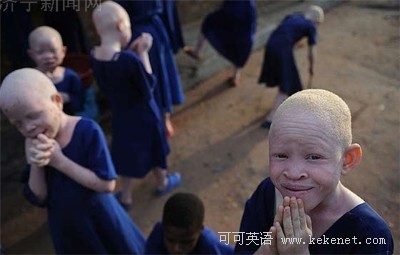One likely explanation is that those who believe in witchcraft feel they have less control over their own lives. People who believe in witchcraft often feel victimized by supernatural forces, for example, attributing accidents or disease to evil sorcery instead of randomness or naturalistic causes. A cultural belief in witchcraft has wider implications for Africans as well,
一種可能的解釋便是迷信者感到自己對生命無法完全控制。他們常常覺得自己是超自然力量的受害者,例如,他們會將事故或者疾病歸咎于惡魔施展了魔力,而不會去追究偶然因素或者自然主義原因。對于巫術的文化執念也對非洲人的生活產生了影響。
African belief in witchcraft has also led to horrific murders and mutilations in recent years. In East Africa, at least 50 albinos were murdered in 2009, according to the Red Cross. While personal belief in magic and witchcraft may seem harmless, the actions some people take based on those beliefs clearly are not.
對巫術的迷信也導致了近些年慘無人道的殺戮和肢解案件。據紅十字會介紹,2009年,至少50位白化病人在東非被殺害。對于魔法以及巫術的迷信看似無害,其導致的行為卻完全相反。














